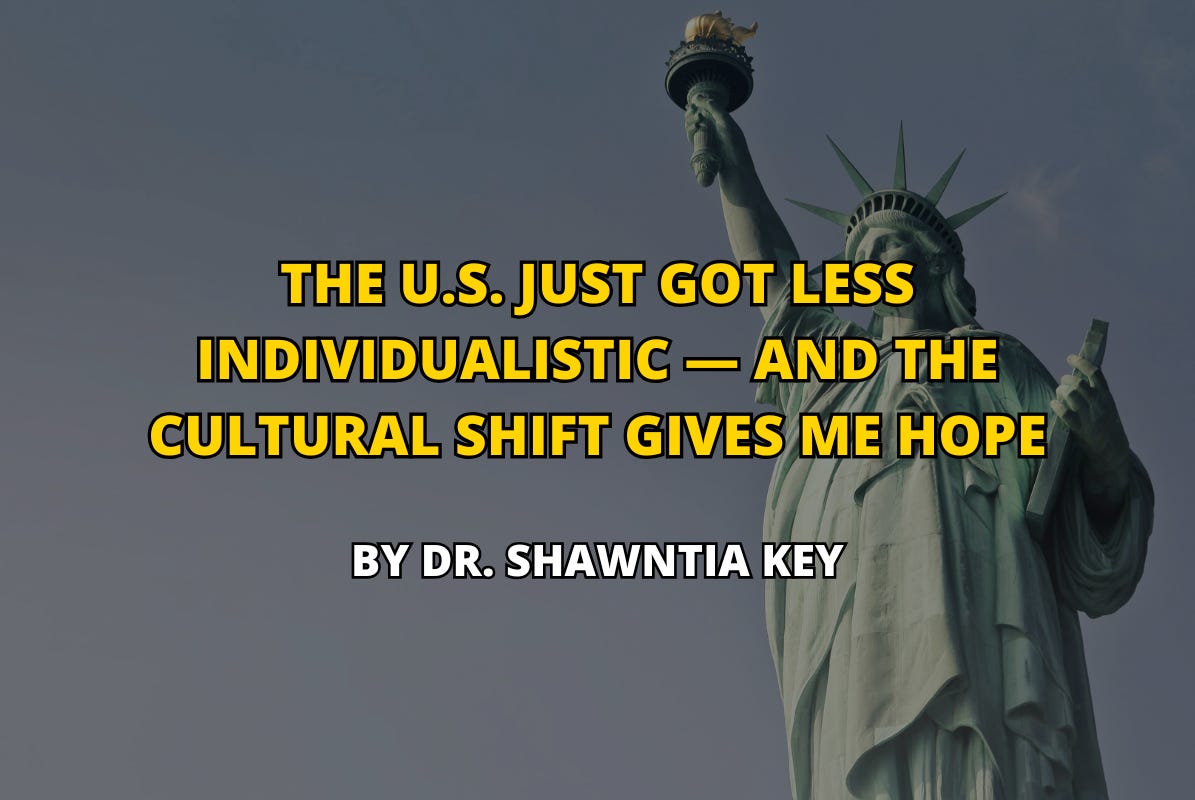The U.S. Just Got Less Individualistic — And The Cultural Shift Gives Me Hope
Did you know Japan is now more individualistic than the USA?
Something huge happened in U.S. culture—and most people missed it. And as an educator who teaches cultural competencies and promotes cultural understanding, I felt this shift before I saw it in the data.

The U.S. Was Always THAT Country
For context, the United States has always been known as one of the most individualistic societies in the world. Since I was a kid, I was told to "find ways to stand out" so that colleges would notice me beyond my academics. When I finally entered the workforce, I was asked to “focus on success and achievements” so employers could see the value in me.
Self-expression, putting yourself first, personal freedom — these are deeply embedded traits that influence everything from our education system to our favorite TV shows. So whenever I taught my students from countries that traditionally put the group over the individual, it was easy for me to explain the cultural differences between our countries because it was, for lack of a better word, black and white.
But something surprising just happened.
The Culture Factor: The Data Shift We Didn't See Coming
According to The Culture Factor—a research firm that updates the cultural traits of countries based on long-term psychological and behavioral data—the U.S. score for individualism dropped significantly for the first time since 1967.
The U.S. individualism score dropped from 91 to 60 out of 100. While Japan, previously more collectivist, now ranks at 62—making it officially more individualistic than the U.S.
What Does That Actually Mean?
The drop in score doesn't mean the USA will suddenly have us sing "Kumbaya," but it does mean there has been a shift in how we define success, identity, and belonging. Our society is showing more interest in collaboration, shared responsibility, and mutual care. We are moving from a “me first” mindset to asking, "Where do I fit in a larger system?"
A question I often ask myself is, can I thrive without leaving people behind?
What I See as an International Educator
I work closely with students from all over the world, and over the years, I've noticed an increased interest in interdependence—the idea of maintaining individuality while supporting something larger.
This opens exciting possibilities for international education because it is a field built on cross-cultural exchange. But instead of focusing only on individual mobility, we should evolve to focus on a community of shared global responsibility. For myself, I've already moved away from preparing students to go abroad for personal gain and instead prepare them to engage with communities and build something sustainable with others, not just for themselves.
And to be honest, this shift feels deeply personal. I grew up moving between communities and cultures, learning to survive in one space while adapting to another. So, watching a new generation of students lean into collaboration and global empathy feels like a step in the right direction. We're finally understanding that you don't have to choose between being yourself and being there for others. You can do both.
What do you think? Have you noticed a cultural shift in the U.S?
Source: The Culture Factor 2023 Global Report: https://news.theculturefactor.com/news/the-culture-factor-global-report





